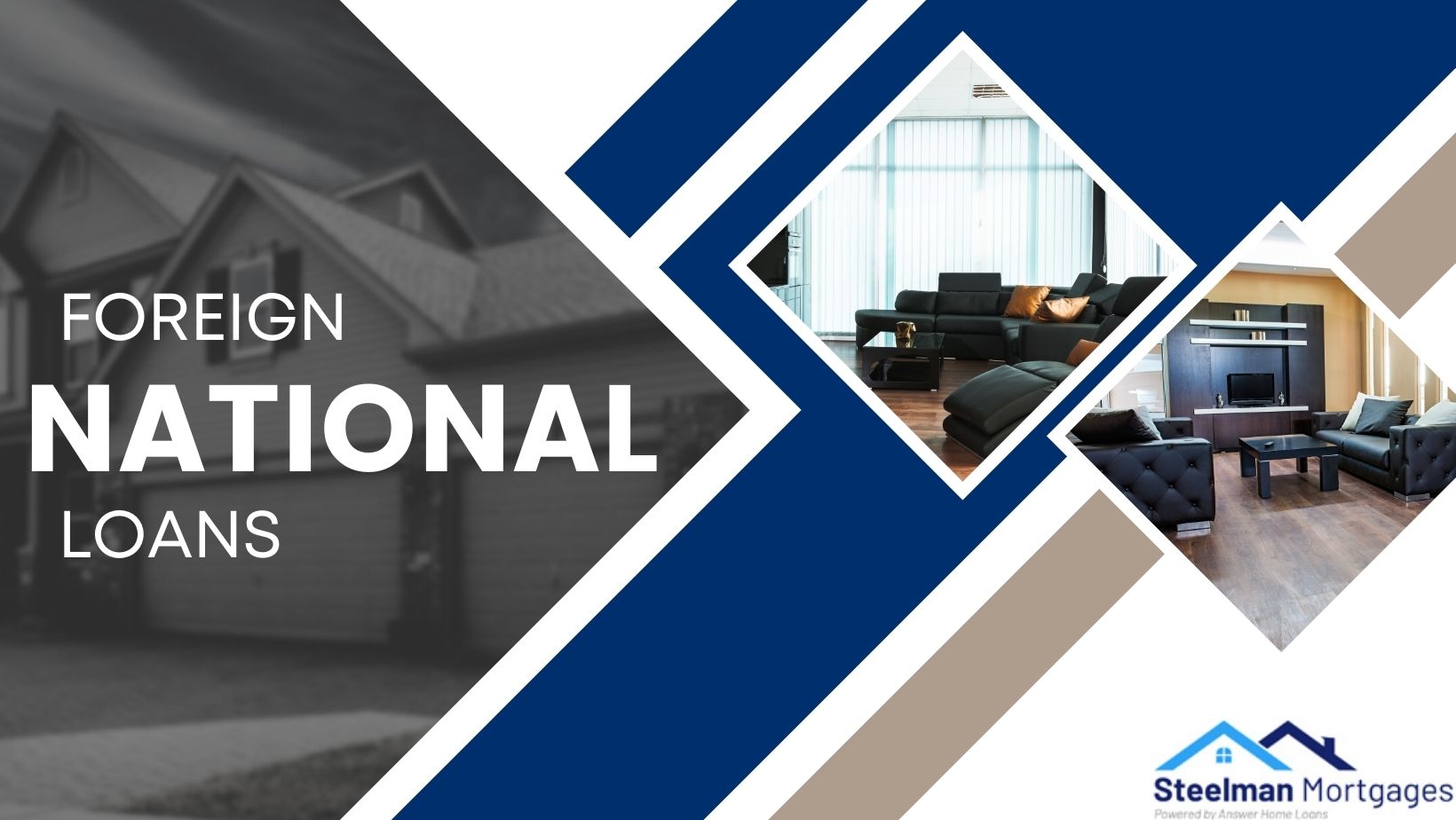If you are not a US citizen, you may still be able to purchase a home in the US through a Foreign National Loan.
There are different requirements for a Foreign National Loan in contrast to other loan types, so read on to see if it might be the perfect fit for you.
Who is Eligible for a Foreign National Loan
Live and Work Outside the US
Qualifying for a Foreign National Loan requires being able to verify foreign national status. This means showing proof of residence and employment outside the US.
No Credit Score Needed
A credit score is not necessary to qualify for a Foreign National Loan. You can apply without a US credit score, and even without a foreign credit score, and it won’t be an issue for you.
Foreign National Loan Terms

There are a few terms to expect when applying for a Foreign National Loan:
LTV Ration
A Foreign National Loan can have up to a 70% LTV, or loan-to-value ratio. This means the loan can be up to 70% of the value of the property. For example, a $1,000,000 can be purchased with a loan for up to $700,000, or 70%. This is important to keep in mind, as the down payment requirement for a Foreign National Loan is almost certain to be higher than other loan products.
Loan Amount
Loan amounts for a Foreign National Loan can range from $75,000 to $1,500,000. Whatever type of property you are considering, it’s possible that a Foreign National Loan will work for you.
DSCR of 1.0 or Above
A DSCR of at least 1.0 will be required for a Foreign National Loan on an income property. DSCR is the debt service coverage ratio. This is the ratio of income from the property to the debt payments for it, including principal, interest and fees. A DSCR of 1.0 means the income for the property is equal to the debt payments. Anything lower than a DSCR of 1.0 represents higher risk to the lender, and isn’t available for a Foreign National Loan.
ACH Automatic Payment
An ACH (automated clearing house) automatic payment from an FDIC insured US institution will also be required for a Foreign National Loan.
More: What is an asset qualifier mortgage?
Who is the Best Fit for a Foreign National Loan?
How can you tell if a Foreign National Loan is the right fit for you? Contact us with questions if you think you’re eligible so we can walk with you through the process. Here are some scenarios that might indicate you are a good candidate for a Foreign National Loan:
Real Estate Investor
If you are building a real estate portfolio and want to enter the US rental market, using a Foreign National Loan will open up many opportunities for you. While living and working in another country, you can purchase a US property and watch it become a passive income stream for you.
Being eligible for a Foreign National Loan means being a resident of another country, so keep in mind that you will need a local property management agency to make this plan successful.
Vacationing in the US
If you have family in the US or enjoy vacationing here, owning a second or vacation home makes perfect sense. Whether you choose to have the property operate as an income property when you are not there or keep it as an exclusively personal residence, a Foreign National Loan will make owning a US home an option for you.
Remember, if you do not intend to make an income from the property, the DSCR restrictions will not come into play. This may require additional assets or cash on hand to qualify for the loan, but it is still possible!
If you think a Foreign National Loan may be the right fit for you, or if you have questions about other mortgage options, contact us today to see how we can help you purchase your next home.
For more information on mortgages and home loans in Roseville CA or refinancing services for the entire Placer County California area or tips on buying a home, contact my office below or call me any time at (916) 847-7263
More Information for Homeowners
How To Know How Much Equity I Have In My Home
How Best to Take Advantage of Your Home Equity Gains
How Much Down Payment Do I Need for a Rental Property?
3 Ways to Know if Refinancing is Right For You
What is the Minimum Down Payment on a House?





